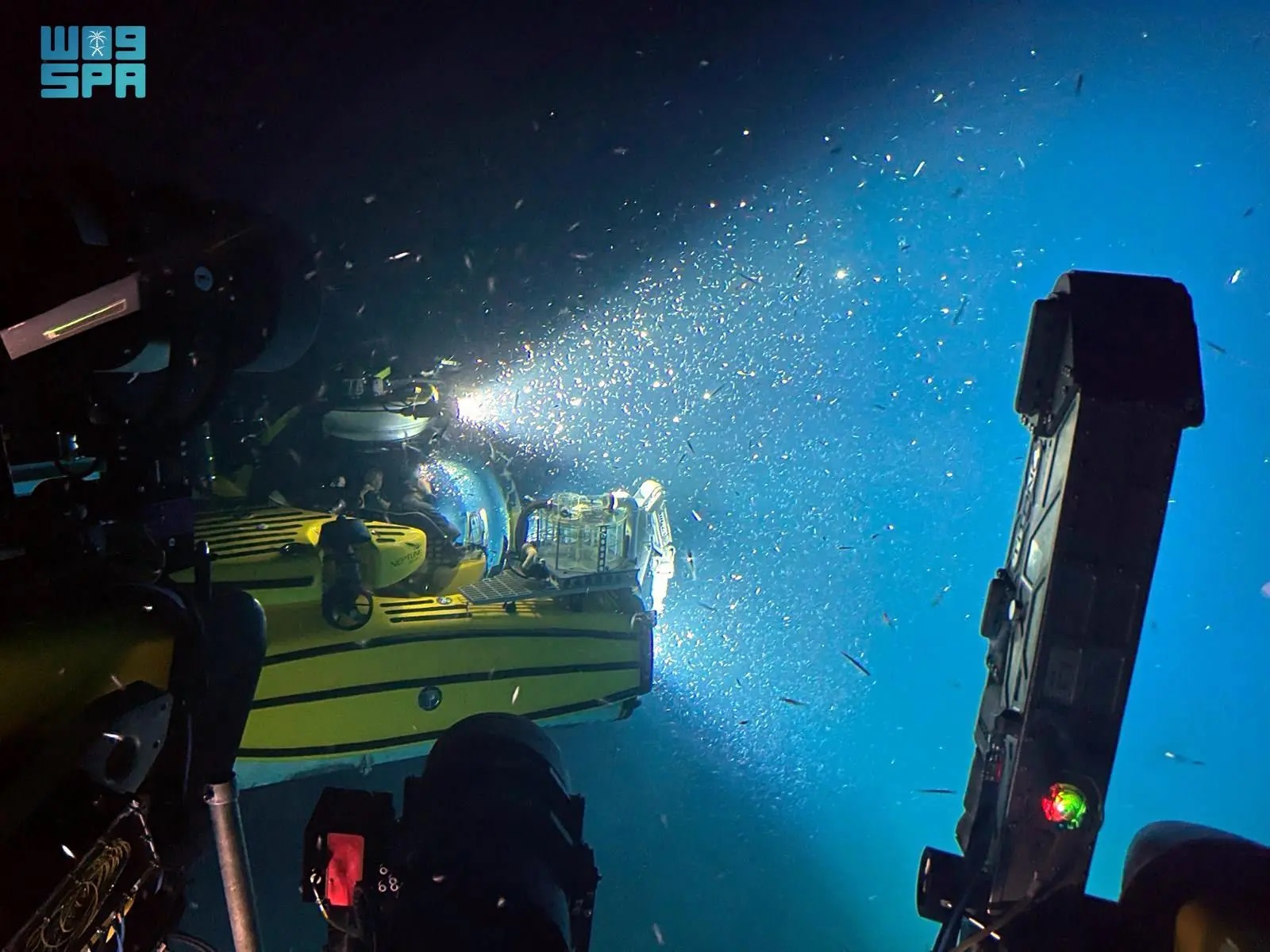
KAUST: Unexpected Ecosystem Found Deep below Red Sea Coral Reef
Scientists from King Abdullah University of Science and Technology (KAUST) and the National Center for Wildlife (NCW) have reported the discovery of an unusual ecosystem beneath the world’s third-largest coral reef system—and the largest in the Red Sea. Located in Difat Farasan, also known as the Farasan Bank near the border between Saudi Arabia and Yemen, the deep waters were found to be inhabited by corals, fish, and other marine life not typically expected to survive in environments with such low oxygen and high acidity.
According to a press release issued by KAUST, several of the species displayed unexpected coping strategies in the extreme conditions. Fish exhibited slower swimming patterns, and corals remained healthy despite environmental factors that would normally inhibit the calcification process essential for coral growth and survival.
KAUST Research Scientist Dr. Shannon Klein, who led the study, said: “The ability for these animals to live in warm, oxygen-depleted zones suggests they have an unusual ability to reduce how much oxygen they use to sustain life. This discovery highlights the need for greater marine exploration of deeper layers in tropical coastal areas, as they may hold unexpected ecosystems.”
“Although underwater, fish, corals, and many other sea creatures need oxygen to survive. While their bodies have evolved differently from land animals to metabolize oxygen, they too asphyxiate if oxygen levels drop dangerously low. However, in the Red Sea, there are resistant ecosystems. Considering that oxygen depletion in the sea is one consequence of rising temperatures, greater study of how these creatures exist there may help us understand how marine life can withstand the challenges of climate change. Coral reefs usually exist in shallow waters. But the study found depressions that went more than 200 meters deep throughout the Farasan Bank coral reef system,” she added.
CEO of the National Center for Wildlife and contributor to the study Dr. Mohammad Qurban stated: “This research highlights the significance of the Red Sea as a natural laboratory for studying marine resilience. Discovering ecosystems that thrive in extreme conditions expands our understanding of how marine life adapts and reinforces the need for continued exploration and conservation of these unique habitats.”








